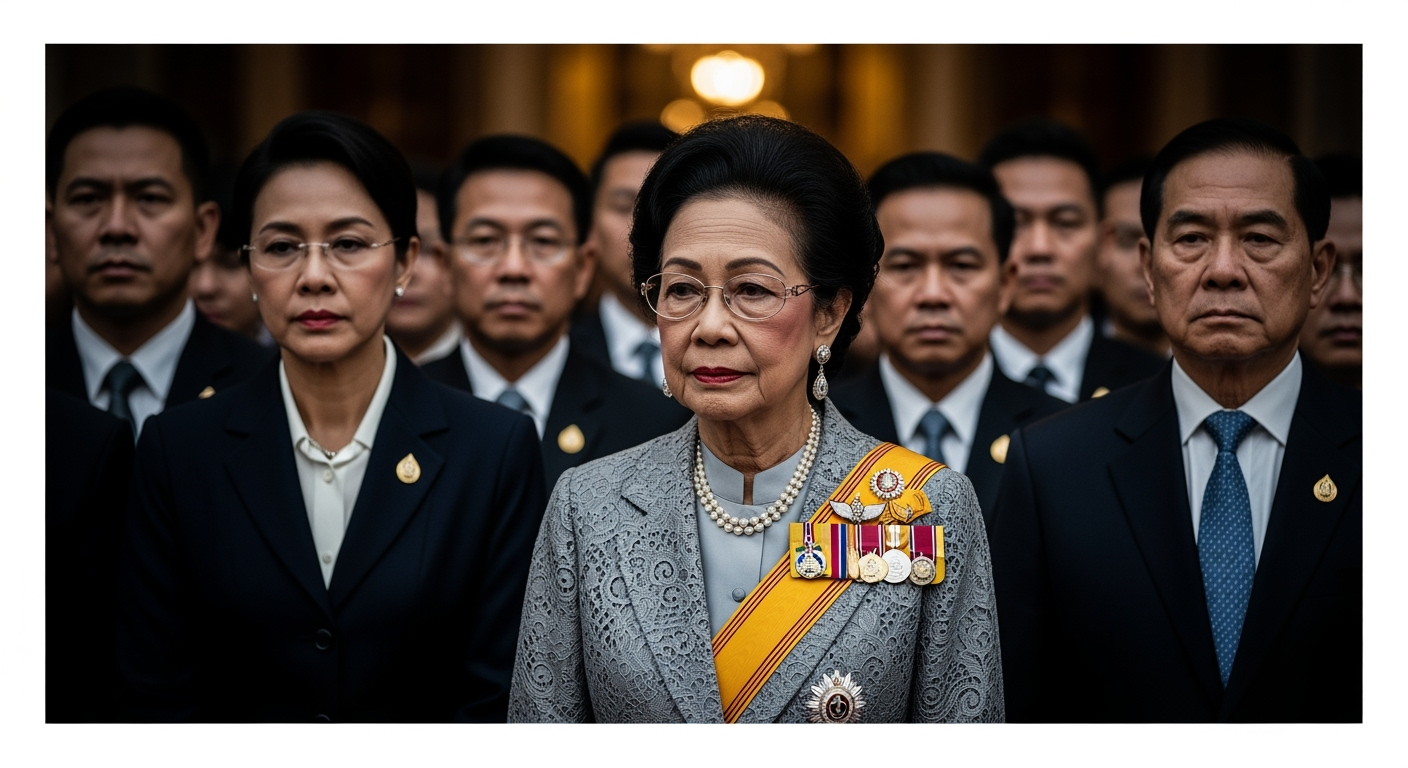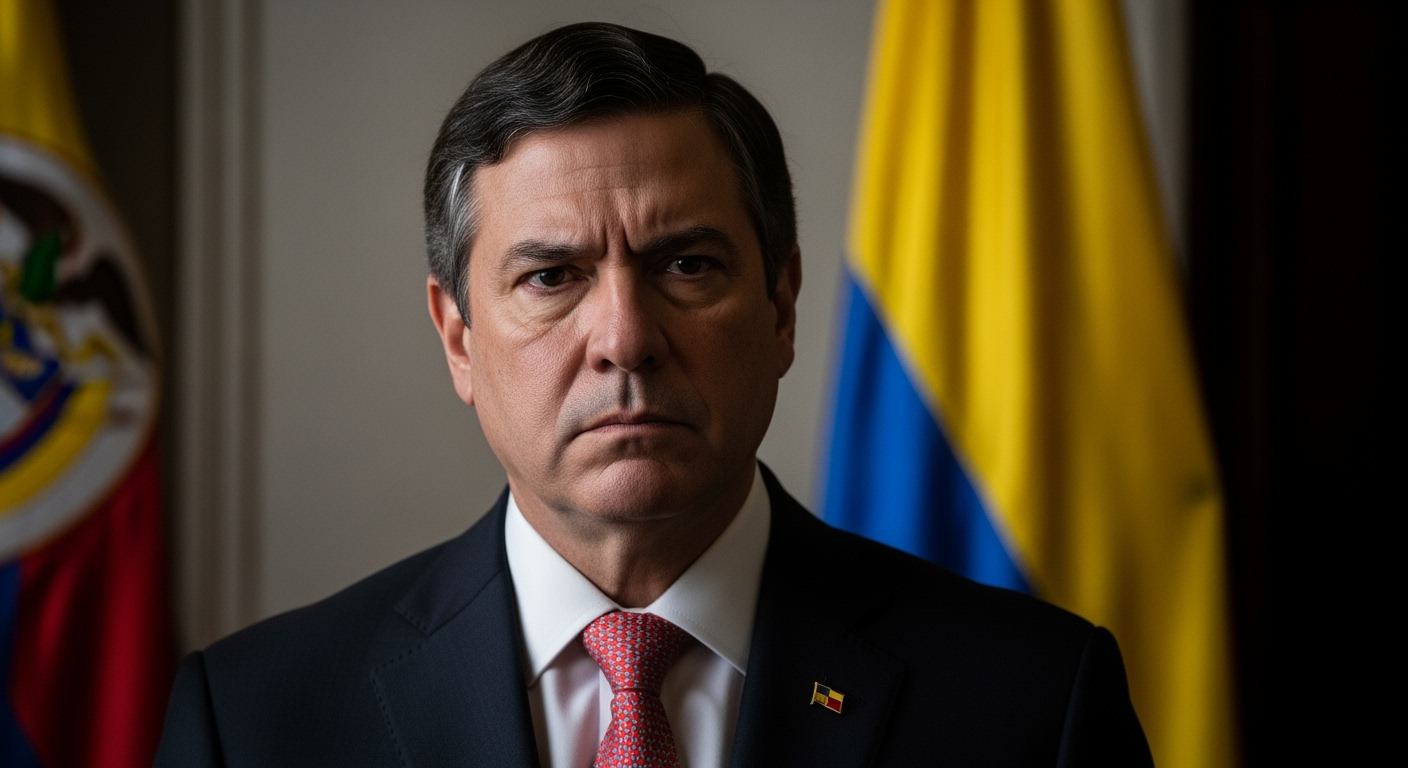Related Articles



WASHINGTON D.C. – October 24, 2025 – In an unprecedented move, the United States Treasury Department today announced sanctions against Colombian President Gustavo Petro, his wife, son, and the nation's Interior Minister, citing their alleged involvement in the illicit drug trade and a perceived failure to stem record cocaine production. This action marks a severe downturn in relations between Washington and Bogotá, traditionally close allies, further intensifying an already contentious "feud" between President Donald Trump and Colombia's first leftist leader.
The sanctions, levied by the Treasury's Office of Foreign Assets Control (OFAC), designate President Petro, First Lady Veronica del Socorro Alcocer Garcia, Nicolas Fernando Petro Burgos, and Interior Minister Armando Alberto Benedetti as "specially designated nationals." This designation freezes any assets they hold within U.S. jurisdiction and blocks their ability to conduct transactions with U.S. entities, signaling a potent economic and diplomatic blow. Treasury Secretary Scott Bessent asserted that the Trump administration is taking "strong action to protect our nation and make clear that we will not tolerate the trafficking of drugs into our nation," blaming Petro for allowing drug cartels to "flourish" and for an "explosion" of cocaine production since he took office.
The core of the U.S. Treasury's accusation rests on the claim that cocaine production in Colombia has reached "the highest rate in decades" under President Petro's leadership, leading to an increased flow of illicit drugs into the United States. Secretary Bessent explicitly stated that President Petro "has allowed drug cartels to flourish and refused to stop this activity." The administration also pointed to a September determination by President Trump that Colombia is "failing demonstrably" to uphold its drug control responsibilities.
Further compounding the allegations, the U.S. cited concerns that President Petro's "total peace" plan—an initiative aimed at negotiating with armed groups—has inadvertently provided benefits to "narco-terrorist organizations." The sanctioning of Petro's son, Nicolas Fernando Petro Burgos, follows his 2023 arrest in Colombia on charges of money laundering and illicit enrichment, amidst allegations he funneled drug money into his father's presidential campaign and peace efforts. The inclusion of the First Lady and Interior Minister Benedetti suggests a perception by the U.S. of a broader network of complicity within Petro's inner circle.
Today's sanctions are the culmination of a protracted and increasingly acrimonious relationship between the Trump administration and President Petro, marked by public sparring and policy disagreements. The "feud" has seen President Trump repeatedly refer to Petro as an "illegal drug leader," a "drug dealer," a "thug," and a "bad guy." These rhetorical attacks have been met with equally strong pushback from Petro, who has threatened to sue Trump for slander and stated that Colombia "will not be blackmailed" by the U.S. government.
The diplomatic friction intensified earlier this year when Petro's government initially refused to allow U.S. military flights carrying deported migrants to land in Colombia, a move that prompted immediate threats of tariffs and other punitive measures from Washington. Relations further soured after the U.S. State Department reportedly threatened to revoke Petro's visa following his remarks at the United Nations General Assembly, where he allegedly urged American soldiers to disobey Trump's orders. Colombia's decision to temporarily recall its ambassador from Washington D.C. underscored the depth of the diplomatic crisis. U.S. foreign assistance to Colombia has also seen significant cuts, dropping from over $700 million to an estimated $230 million in the most recent fiscal year, with further tariff threats looming over Colombian exports.
President Petro has vehemently rejected the U.S. accusations, asserting that he has been "fighting drug trafficking for decades." He has characterized the sanctions as a "complete paradox" given Colombia's historical cooperation with the U.S. on counternarcotics efforts, declaring, "not one step back and never on our knees." Petro's counternarcotics strategy deviates from previous U.S.-backed approaches, prioritizing agreements with coca leaf growers for crop substitution, targeting major drug lords, and combating money laundering. He has also been critical of U.S. military strikes on alleged drug boats in the Caribbean and Pacific, claiming that innocent civilians have been killed and that such operations violate international law.
The sanctions are expected to have significant repercussions for Colombia, a nation that has long been a vital U.S. ally in Latin America. Observers warn of potential economic disruptions, including a possible currency and financial crisis, should U.S. financial restrictions and threatened tariffs materialize. The strained relations could prompt Colombia to strengthen ties with alternative international partners, such as China, potentially impacting regional geopolitical dynamics. The move has already drawn varied reactions across Latin America, with some leaders expressing support for or frustration with the U.S. stance. Interior Minister Benedetti reacted defiantly to the sanctions, stating, "Every empire is unjust," and that the U.S. views "a non-violent statement as the same as being a drug trafficker," concluding with "Gringos go home."
The imposition of sanctions on a sitting head of state is a rare event, underscoring the severity of the current diplomatic breakdown between Washington and Bogotá. While traditionally a cornerstone of U.S. policy in the region, the relationship has grown increasingly volatile since Petro's inauguration in August 2022, with his policy shifts and rhetoric contributing to the tension. This escalating feud threatens to unravel decades of cooperation on security, trade, and regional stability.
As the U.S. seeks to pressure Colombia into re-aligning its drug policies, the long-term implications for both nations, and for the broader fight against drug trafficking, remain uncertain. The sanctions could further destabilize Colombia's internal political landscape and its economy, potentially leading to increased poverty and social inequality. The path forward will likely involve complex diplomatic maneuvering, with the potential for either a deepening chasm or a negotiated de-escalation, the latter depending on significant concessions or policy shifts from either side.